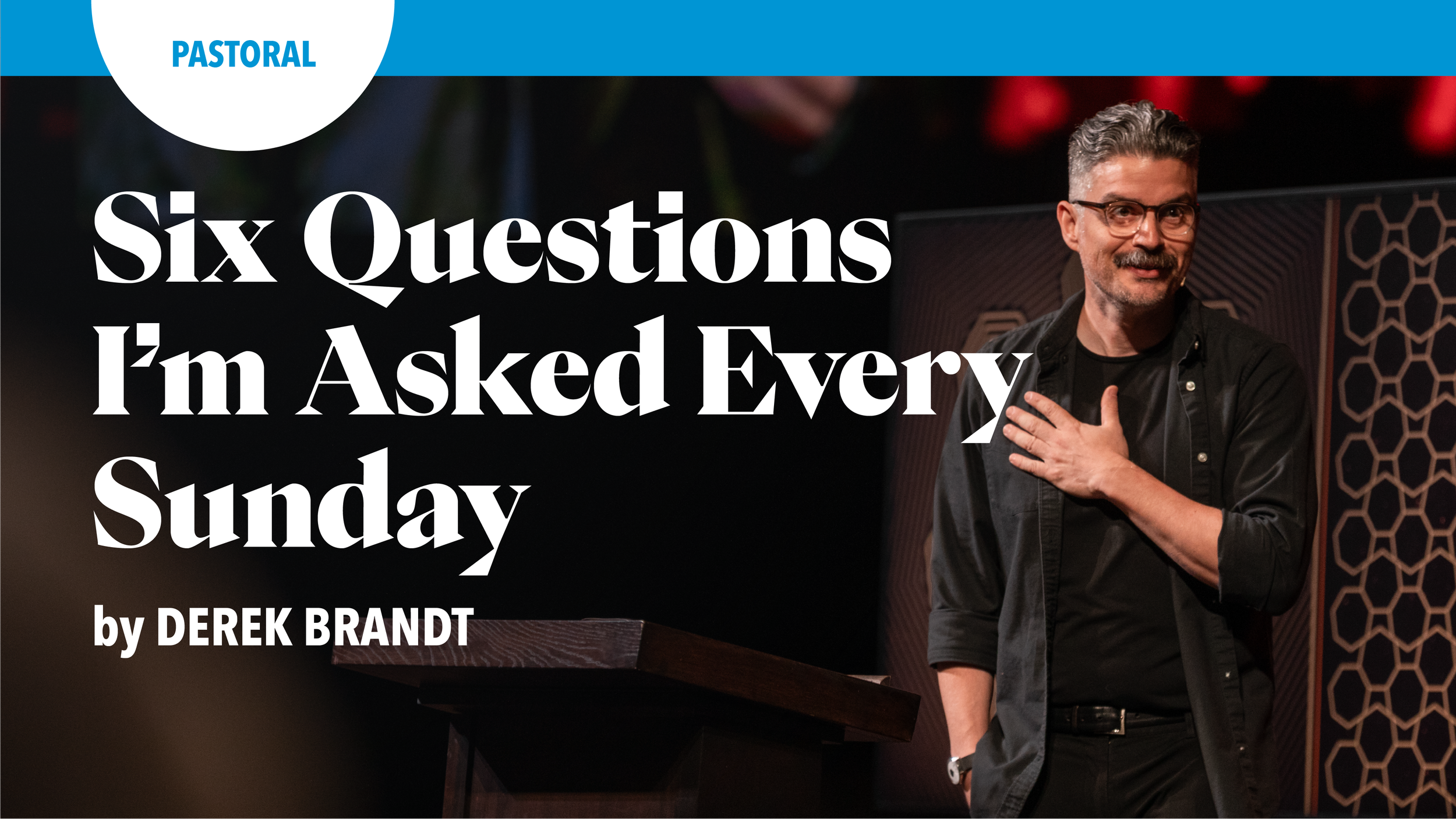Growing in the Gray
Pastoral | June 25, 2025 | By: Ben Powers
You feel it. That tension. Two voices pulling you in different directions. One says, “Say something. That was wrong.” The other says, “Let it go. It’s not worth it.” One tells you, “Step in. This is your move.” The other whispers, “Step back. You’ll only make it worse.” One sounds like conviction. The other like peace. And now you’re stuck wondering: Is this wrong? Or am I just uncomfortable? What’s the right thing to do?
Most moral decisions don’t show up with sirens and fireworks. They show up in quiet moments, relational tension, and emotional pressure. A friend opens up about their choices. A coworker crosses a line. Your spouse makes a comment that lands wrong. Nothing huge. But something stirs inside, and you don’t know if doing something would help… or just blow it up.
And that’s where most of us live: in the gray.
We like to think we’re guided by truth and clarity. But most of our daily decisions are shaped by whatever voice is loudest inside us. That voice usually comes from one of two places: your will or your conscience.
Most of our daily decisions are shaped by whatever voice is loudest inside us.
Your will is where decisions get made. It’s the driver. But it doesn’t default to obedience—it defaults to comfort. Paul says in Romans 7:18–19, “I have the desire to do what is right, but not the ability to carry it out… For I do not do the good I want, but the evil I do not want is what I keep on doing.” You might want to follow Jesus, but your will often wants to avoid pain, dodge conflict, or protect your image.
So your will turns to your conscience—the inner judge that says, “That was right,” or “You blew it.” It’s powerful. But it’s not perfect. The Bible says your conscience can be weak (1 Corinthians 8:7), seared (1 Timothy 4:2), or even guilty when God calls you clean (Hebrews 9:14). Paul even said he had a “clear conscience” while helping persecute Christians.
Your conscience can accuse you when you’re innocent. Or go quiet when you’re heading off the rails. It doesn’t run on truth by default. It runs on formation, your story, your background, your wounds, your need to be liked.
Dr. Curt Thompson, psychiatrist and author of The Soul of Shame, says our minds don’t just think—they narrate. We internalize stories about who we are, what’s safe, and what will help us survive. He writes, “We become what we pay attention to. Attention is the beginning of devotion.” That matters, because the voice you listen to most, whether fear, shame, the past, or God shapes your decisions.
We become what we pay attention to.
According to Thompson, the will isn’t isolated. It’s deeply shaped by your relational history and inner narratives. You’re not just choosing between right and wrong. You’re choosing between competing stories. One says play it safe. The other says take the risk.
And your conscience? It can be distorted by shame, fear, or trauma. What feels right or wrong in the moment might not be rooted in truth at all.
So, what do you do when your will wants to protect you and your conscience isn’t synced to what’s true?
That’s where the Holy Spirit comes in, not as a gut feeling or second opinion, but as God. Jesus says, “The Spirit of truth… will guide you into all the truth” (John 16:13). That’s what He’s doing every day. He guides. He corrects. He leads. But He doesn’t scream. He doesn’t shout over your fear or past. He speaks with quiet authority. And if you’ve ignored Him for a while, He usually just invites you back, picking up where He left off, not piling on guilt.
And here’s the part we don’t always like: the Spirit doesn’t change you instantly. There’s no magic wand for spiritual maturity. He grows you slowly, intentionally, over time.
There’s no magic wand for spiritual maturity.
He shapes your will and retrains your conscience like a gardener showing up each day. Like a teacher instructing slow learners. Like Jesus with Peter, who was bold and impulsive but constantly getting it wrong. Jesus didn’t give up on Peter. He restored him. And over time, the Spirit transformed him.
That’s why Peter wrote, “Grow in the grace and knowledge of our Lord and Savior Jesus Christ” (2 Peter 3:18). He didn’t just preach that. He lived it.
So, let me ask: What are you paying attention to? Is your will being shaped by social pressure or by Scripture? Is your conscience trained by grace or by guilt?
The good news? You can grow. Slowly, yes. But deeply.
You can become someone who knows when to speak and when to stay silent. Someone who feels conviction, but not condemnation. Someone who moves with clarity and peace, not fear or pressure.
But that kind of discernment doesn’t come fast. It comes through Scripture. Through confession. Through choosing small, hard things, again and again. No shortcuts. No fast tracks.
So, if you’re in that space today, torn between voices, unsure what’s right…
Take heart.
You’re not broken. You’re being formed. You’re not failing. You’re growing. And the Spirit’s not in a hurry.
This is how clarity grows: In the quiet. In the slow. In the tension.
This is growing in the gray.
Ben Powers
Cactus Men’s, Marriage & Groups Pastor
The Rooted Experience is a powerful place to start your journey—discover seven rhythms that will help you hear God more clearly and grow in your faith.
Like this Article? Share on Social:
Featured Articles
Recent Articles
Similar Articles






